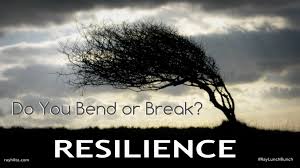Word-Of-the-Week #716: Resilience
April 26, 2018 by Susan Clarke
Resilience – ability to adapt well in the face of adversity, trauma, tragedy, threats or significant sources of stress.
How well do you adapt to adversity or a tragedy? How often do you experience significant stress? Do you think that resilience is about being tough enough?
This Washington Post article “Resilience isn’t just being tough; it’s a skill you can develop. Here’s how I did it” by Steven Petrow felt like a perfect follow up to last week.
“Maybe it’s just coincidence that resilience is trending during these troubled times, but it does seem to have become the buzzword du jour. Sheryl Sandberg and Adam Grant examine it in their best-selling book, “Option B: Facing Adversity, Building Resilience, and Finding Joy,” which is one of hundreds of similar titles online (many aimed at children). The highly motivated can enroll in courses such as the one taught at the University of Minnesota, “Change: Loss, Opportunity and Resilience” or “Mental Resilience Masterclass” available online.
But today’s concept of resilience is not the old-fashioned idea of being tough enough to bounce back after the bad stuff in life. Today’s resilience is about how we respond to experiences such as trauma, divorce, bankruptcy, unemployment or a death in the family. Tara Brach, psychologist and Buddhist meditation guru, put it to me this way: “Our habit is to view challenging situations as if something is wrong; that we are a victim and we have a problem. What if instead of a problem, we perceive stress as a signal to call on our resourcefulness, our intelligence, care and courage? Resilience grows when we become intentional about bringing our best to difficult life seasons.”
I have more than just an academic interest in the subject. In the space of four months this past year, my mother and father died; my husband and I separated; and I had a health scare. “Any one of those life changes would be enough to make someone trip if not fall,” was a constant refrain from friends. They were surprised by how resilient I was in navigating these choppy waters. 
I was, too.
Wondering where that newfound resilience had come from, I asked Brach, who told me that resilience is not a fixed trait, that it can be learned. You can develop resilience, and you can lose it as well.
Struggling through those awful months, I felt buffeted by loss, grief and anger. Initially, I saw myself like the towering pecan tree in my back yard — tall, stately, with a very shallow root base — and vulnerable to collapse in a storm. Through a daily meditation practice I had started six months earlier, I witnessed the shift Brach described. I became more like a weeping willow, with far-reaching roots and a yielding flexibility. Willows rarely topple in the wind as they are the ultimate go-with-the-flow type of tree.
Resilience, it dawned on me, was more like balance than toughness. As I discovered with yoga, I can easily do what’s called tree pose (balancing on one leg) on some days; those are the days when my body can make the constant recalculations and readjustments necessary to remain steady. Other days I fall over like, well, a dead tree. That tends to happen when I’m ill, angry, distracted or tired. Over time, however, I’ve developed better ways to deal with what irks me, and my toppling days are fewer.”
This week’s focus is on resilience. Have you experienced trauma, divorce, bankruptcy, unemployment or a death in the family? How well did you respond to it? Are you able to express the emotions you are feeling? Are you a pecan or a willow tree?
I LOVE feedback! Join my Facebook community on my FUN-damentals Fan Page.

